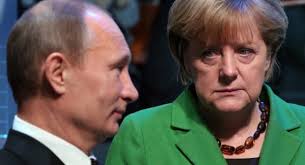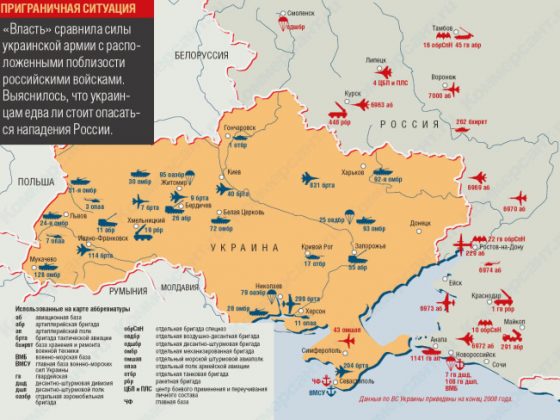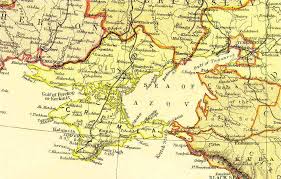Angela Merkel’s recent characterization of Vladimir Putin as being “out of touch with reality” offers a psychiatric explanation of Russia’s aggressiveness toward Ukraine. Yet the problem is a bit more complicated. Could it be that there is a clash of two divergent realities? Was this the factor that spurred the crisis in relations between Russia and the West?
For quite a while, one could have imagined that the roles that Europe and Russia played in their common neighborhood were merging – with Brussels acting increasingly geopolitically, and Moscow developing its own soft power normativity. However, last fall, events in Ukraine made clear that this role-swap didn’t bring much success to either of them. The EU ultimately realized its lack of two major geopolitical resources needed to counterbalance Russia: energy and military force. Russia, in its turn, understood the limits of its normative traction and chose to rely on physical coercion at the expense of previous soft power experimentations.
At the moment, rhetorically, there is very little that Moscow and Brussels share in their policies toward Ukraine. The EU portrays its behavior as strictly normative, pretending to ignore strong political ingredients in its cherished function of norm projection. Russia, according to this logic, voluntarily detached itself from Western international society by preferring to build its policies on the basis of narrowly understood national interests rather than act institutionally. From its part, Russia stems from its allegedly “natural” right to play a protective role in Eastern Europe, legitimized, in Putin’s eyes, by mere references to history, geography, and culture (or civilization).
What is even more fundamental is that Putin’s reaction to the crisis in Ukraine was grounded in a gross misperception of Western policies. Arguably, Putin may think that he has already struck a deal on spheres of influence. Indeed, there are a number of factors that, being assembled in one chain of events, could have created this misinterpretation.
First, at the NATO summit in Bucharest in 2008 neither Georgia nor Ukraine were bestowed Membership Action Plans, which could have been interpreted by the Kremlin as a de-facto acceptance of Russia’s concept of “red lines” that the West is not supposed to transcend.
Second, the U.S. administration made clear that it is more interested in the Asia Pacific than the pan-European region, which completely suited Moscow and was interpreted as a sign of Washington’s disinterest to counter-balance Russia.
Third, the de-facto annexation of two breakaway Georgian territories in August 2008 did not entail serious political consequences for Moscow. The same goes for Russia’s reluctance to withdraw its troops from Transnistria and disinterest in implementing the German–Russian Meseberg initiative on settling this frozen conflict.
Finally, the Customs Union received primary international legitimation – at least, it as mentioned in EU documents.
All this could have created an impression that the West, though informally and reluctantly, has recognized Russia’s claims for its zone of vital interests. This might explain Putin’s cognitive dissonance after having discovered that this is not true. The key question at this point is whether Putin simply misinterpreted the signals from the West, or whether these signals were indeed inherently vague and uncertain? And if the latter is the case, did the West intentionally play with uncertainty in communicating with Russia as a means for keeping space for maneuvering? Or can this uncertainty be explicated through the prism of a lack of unity within the EU and sometimes NATO as well?
Communication problems were only aggravated by Moscow, which intentionally created its own zones of uncertainty in its core concepts of foreign policy. Remember, in 2008, Dmitry Medvedev averred that Russia’s zone of primordial interests may stretch even beyond neighboring countries – it still remains unclear what this statement was supposed to mean. Even more consequential is the Federation Council’s appeal to “protecting Russian compatriots and Russian speakers” beyond the borders of the country – does it mean that Moscow reserves a right to “protect” anyone in the world who would speak a word in Russian?
Anyway, the scope of Moscow’s misperceptions of the West (and the West’s policies) requires Western countries to seriously reframe their discourses. Instead of endless talk about cooperation in a wider Europe, Western governments and foundations ought to focus on launching more targeted debates on issues that create a fertile ground for unintended miscomprehensions and intentional anti-Western theories of conspiracy.
First, there is a need to disavow a widely spread belief among the Russian political elite – and society as well –that Russia gained nothing from its cooperations with the West. In many policy spheres – from education to economics – most success stories were to a large degree conditioned by close engagement with the West.
Second, there is much room for more specific debate on how power has to be understood in today’s world. Moscow seems to grossly misunderstand the fact that all of its investments in the Sochi Olympic project as a soft power tool were completely devastated by flexing its military muscles in Ukraine. Yet Europe does have a strong argument against the Kremlin’s dominating hard power logic – in no single case in the contemporary world has hard power been able to solve any international issues.
Third, there is a need for a debate on whether the spheres-of-influence idea is, in principle, feasible in a global world (with the changing meanings of borders and sovereignty). Perhaps, purely academic discourses that abound on this issue ought to be translated into a policy-relevant language that would send a strong message to the Kremlin.
Fourth, Putin has to receive a clear signal that his interpretations of international law is narrow and selective, and leads to justification of unilateral actions. Of course, it is true that many in the West are far from perfect in compliance with international law as well. Yet the fundamental difference is that Western countries always prefer to create coalitions before applying force, thus raising the international legitimacy of their actions. Russia, on the contrary, is a lonely military actor, which drastically decreases any possible legitimation of its security policies.
Certainly there are other issues as well when crossing the t’s and dotting the i’s would be necessary for avoiding miscomprehensions and miscalculations. Should the state of uncertainty persist from both sides, future conflicts seem inevitable.











